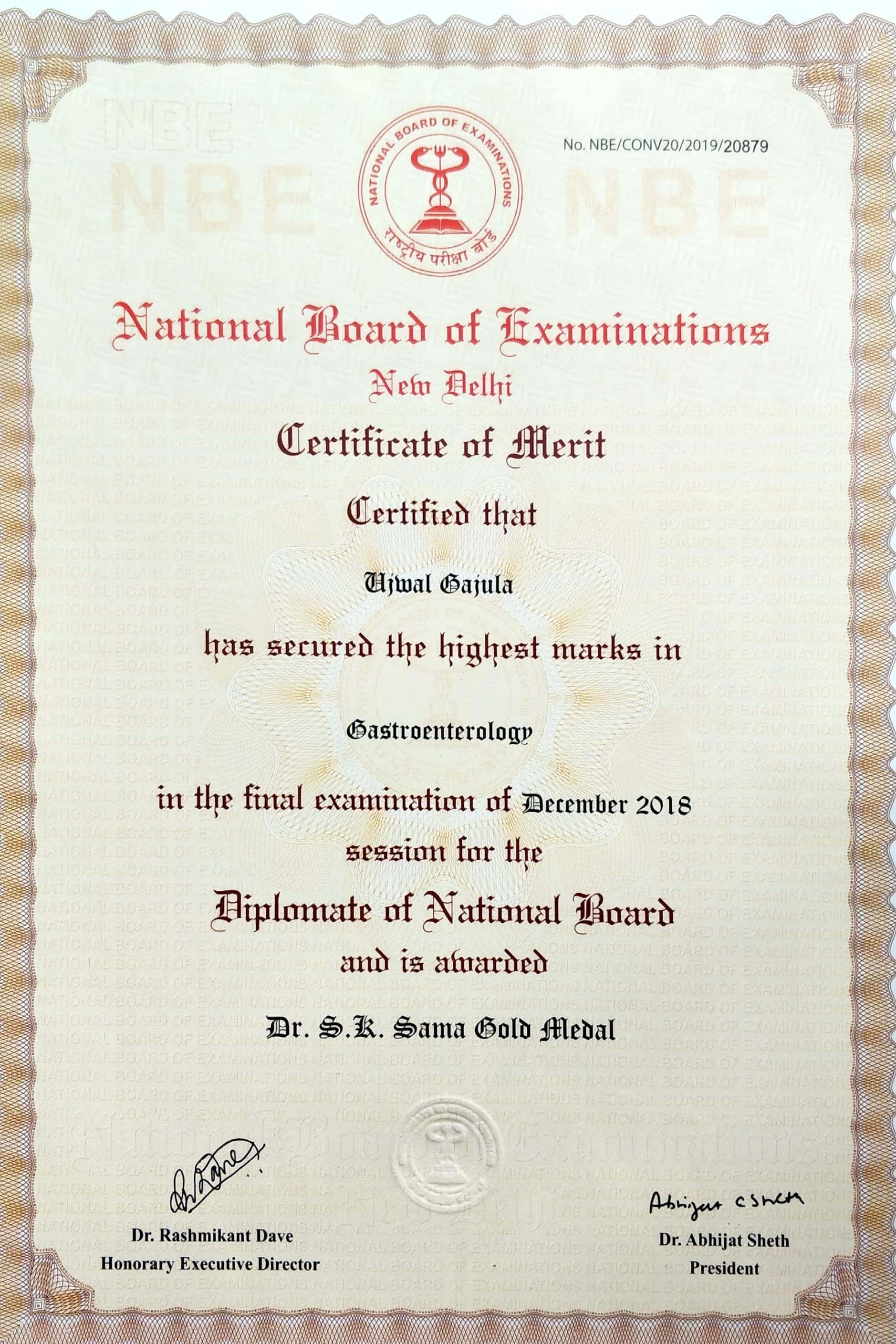
Dr. Ujwal Gajula Gastroenterologist in Hyderabad
MBBS, DNB Medicine (pune), DrNB Gastroenterology, (Apollo,Chennai) - Gold Medalist
Dr. Ujwal Gajula is a highly skilled and renowned gastroenterologist and hepatologist based in Hyderabad. With expertise in diagnosing and treating a wide range of digestive system and liver disorders and Dr.Gajula is working with Premium corporate hospitals.
Education
- MBBS [Mamata Medical College,Khammam]
- DNB Medicine [Poona Hospital,Pune]
- DrNB Gastroenterology [Apollo Hospital, Chennai]
Specializations
Comprehensive management of chronic liver conditions such as hepatitis, cirrhosis, and liver failure.
Diagnosis and treatment of gastric ulcers and gastrointestinal cancers.
Advanced care for gastroesophageal reflux disease (GERD) and acid reflux.
Minimally invasive procedures for gallstone disease and prevention of cholecystitis.
Expert management of acute and chronic pancreatitis with tailored treatment plans.
Effective solutions for chronic constipation to improve bowel function and quality of life.
Specialized care for colonic cancers including early detection and treatment strategies.
Comprehensive management of colitis, including ulcerative colitis and Crohn’s disease.
Awards & Honors
Enhanced Section Best Poster Award – Received at the Indian National Association for the Study of the Liver (2018) for outstanding research presentation.

Gold Medal in DNB Gastroenterology – Awarded for exceptional academic performance and clinical excellence in gastroenterology.


Certificate of Merit – National Board of Examinations, 2018, awarded for securing the highest marks in Gastroenterology.
Professional Memberships
1. Indian Society of Gastroenterology
2. Indian National Association for the Study of the Liver


